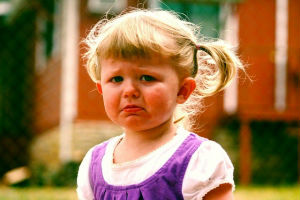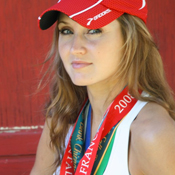Feelings, Something More Than Feelings
It feels strange to say it—adolescent really—but the other day, my feelings were hurt. I even cried.
Isn’t it extraordinary that adults can have their feelings hurt? It sounds so juvenile, like a playground injustice, and yet we never outgrow our capacity to feel wounded. Distinct from betrayal or rebuke or vendetta, hurt feelings are subtler. They are deeper. Less laceration and more bruise, they announce themselves by way of a dull throbbing, an acute tenderness, and then an ache, heavy and trenchantly personal and always—always!—in the same location, like a subterranean contusion. With each blow, the welt grows tenderer. And there is no ointment, no stitch, no tourniquet to catalyze healing. There is only time and our wonderful and terrifying faith in the human wont to forget.
I think one of the sensations that connects me most to my younger self—my true child self—is hurt feelings.
I swear it’s not as depressing as it sounds.
I think the feelings that are hurt when we talk about hurt feelings are the same feelings our whole lives. You can break your arm or twist an ankle, and the pain is unique to the injury and locus. But when your feelings are hurt, it’s the same injury to the same site with the same dull ache. The spot that turns black and blue when we are little kids is the same spot that turns black and blue when we are adults. I think because, maybe, that part of us always stays childlike. It’s the part of us that still believes that things will be okay. It’s the part of us that believes the best of people.
 My mom told me that once, when I was two, I saw a group of high school kids outside our church. Pulling the pacifier out of my mouth, I toddled up to them pell-mell and announced, “I’m heewahh!” Because, obviously, they were waiting for me and we were all going to have a grand time and my! isn’t life wonderful?
My mom told me that once, when I was two, I saw a group of high school kids outside our church. Pulling the pacifier out of my mouth, I toddled up to them pell-mell and announced, “I’m heewahh!” Because, obviously, they were waiting for me and we were all going to have a grand time and my! isn’t life wonderful?
Even at two, I was an idealist.
Needless to say, they weren’t waiting for me. Neither were a lot of people, I would come to find out. Hurt feelings are a peril of idealism. When we are genuine, we are vulnerable. And no blow is quite as potent as the one that strikes us where we are utterly unguarded.
I went for a run that afternoon a few days ago. It was almost instinctual—like a survival mechanism. Over the course of three decades, the world has tried to wallop the idealist right out of me. And more often than not, I counter with a run, my right-hook of a defense.
The day was cold and rainy—a thick, penetrating mist that blurred the landscape, like when your eyes fill with tears. At the risk of sounding saccharine, it was almost as though the earth was crying with me, as if it were assuming my pain and wrapping its arms around my shoulders. “I’m sorry,” it seemed to say. It didn’t have an answer. And that was fine. Sometimes we don’t want an answer. Sometimes we just need someone to be sad with us.
I ran and I was sad and the earth was sad with me. And as the miles melted into the gray, I realized I wasn’t running to sort things out as much as I was running to tend to a part of me that had been wounded.
The little girl in me had been dispirited, and I ran to revive her.
Running is an act of optimism. It is reassurance and loyalty and belief, even when we are surrounded by uncertainty, betrayal, and doubt. It engages every part of us—our bodies, minds, hearts, spirits—in a palpable application of faith and hope. While the world may observe our idealism and laugh, running sees our idealism and says, “I feel the same way.” Running reminds us that we are on our side.
I went for a run that afternoon because I was the same little girl who, thirty years before, had announced “I’m heewah!” And running, as it always does, said back, “So am I.”

Amy L. Marxkors is the author of The Lola Papers: Marathons, Misadventures, and How I Became a Serious Runner and Powered By Hope: The Teri Griege Story. Click here to receive Amy's weekly article via email.
Connect With Us
see the latest from Fleet Feet St. Louis